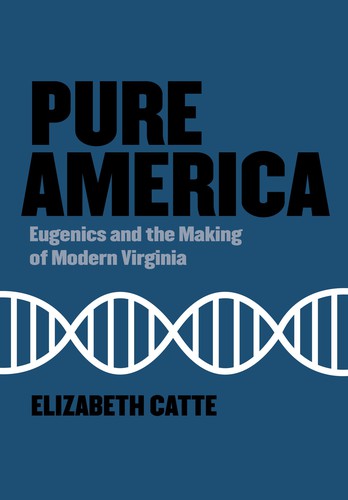elisabeth nicula (e)k Elizabeth Catte(r)en Pure America liburuaren kritika egin du
"$700,000. This is how much the regret for fifty-five years of eugenics costs in the state of Virginia."
4 izar
I found this one both terribly eye-opening and slightly unfocused. Still, would recommend, and it's a quick read. Catte covers a lot of ground, beginning with Carrie Buck of Charlottesville and the grotesque events (including SCOTUS show trial) that led to her forced sterilization at the Lynchburg Colony. There is a brief history of eugenicist thought in the U.S.; a revisitation of the Shenandoah National Park section of What You Are Getting Wrong About Appalachia; a pretty pleasurable skewering of UVa; and an inquiry into the mixed up architectural and eugenic history of Western State Hospital in Staunton, as viewed through its current rehabilitation by real estate developers. Pure America really zings when Catte makes obvious the underlying truths about labor—like that the fundamental point of sterilizing women like Carrie Buck was to send them to work in the homes of rich Virginians without the possibility of their being embarrassingly …
I found this one both terribly eye-opening and slightly unfocused. Still, would recommend, and it's a quick read. Catte covers a lot of ground, beginning with Carrie Buck of Charlottesville and the grotesque events (including SCOTUS show trial) that led to her forced sterilization at the Lynchburg Colony. There is a brief history of eugenicist thought in the U.S.; a revisitation of the Shenandoah National Park section of What You Are Getting Wrong About Appalachia; a pretty pleasurable skewering of UVa; and an inquiry into the mixed up architectural and eugenic history of Western State Hospital in Staunton, as viewed through its current rehabilitation by real estate developers. Pure America really zings when Catte makes obvious the underlying truths about labor—like that the fundamental point of sterilizing women like Carrie Buck was to send them to work in the homes of rich Virginians without the possibility of their being embarrassingly impregnated by their employer (rape was a well known and accepted likelihood). I especially appreciated how she calls out the tendency of white Virginians to hyper-fixate on the portions of Virginia history we are proud of, and elide the portions we are not. That may seem obvious but for me it has been the work of a lifetime to unlearn that presentation of the past (and thus the present) I received while growing up there. She says it straight, which you don't see too much really.

